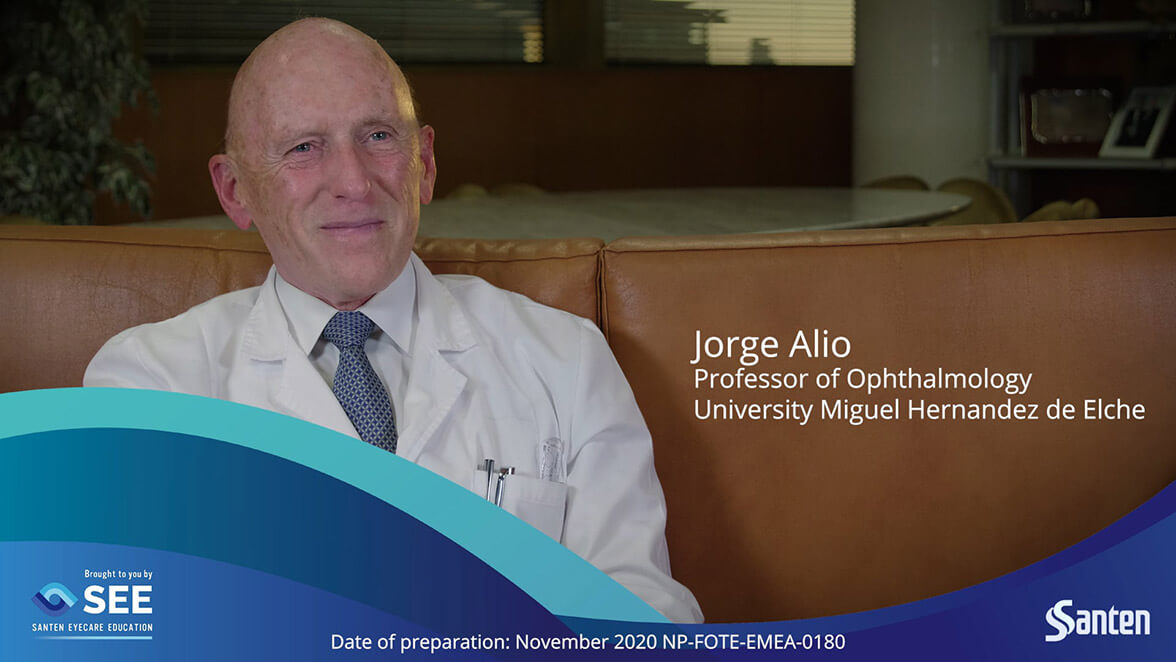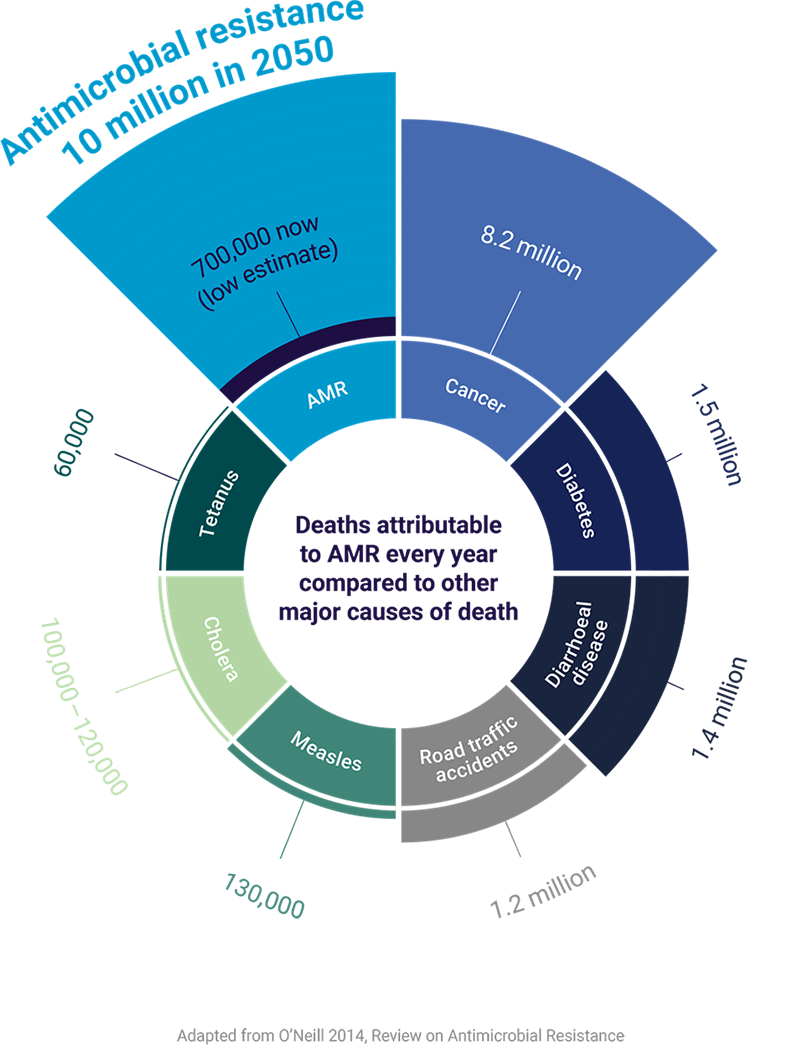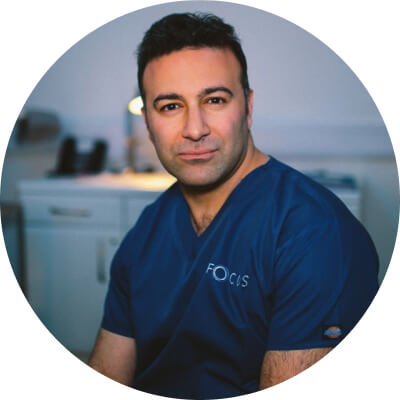Antibiotic resistance in ophthalmology is an urgent global health priority.
Cataract surgery, where prophylactic antibiotics are used, is Europe's most frequently performed surgery. Ophthalmologists have a central role to play managing this urgent global health concern.


An expert perspective
Prof. Jorge Alio (University of Alicante) discusses the importance of antibiotic stewardship in ophthalmology, and what can be done to help prevent infection after cataract surgery.

The World Health Organisation's definition of antimicrobial resistance (AMR) is the ability of a microorganism to maintain vital functions, including reproduction, despite contact with a drug that was once effective against that microorganism.1 Antibiotic resistance is an important component of antimicrobial resistance.1
Antimicrobial resistant infections currently cause 50,000 deaths per year in Europe and the USA.2 If antibiotic stewardship does not improve, this could increase to 10 million deaths per year by 2050.2 And the issue is growing – with overuse and misuse, including exposure to long doses of antibiotics exacerbating this issue.3
Antibiotic Resistance in Ophthalmology
4.5 million cataract surgeries, where prophylactic antibiotics are indicated, are performed each year.4
Since up to 97% of ophthalmologists use post-operative antibiotics, this amounts to 61 million days per year of antibiotic exposure (calculated based on a two week regimen).5
Download NowA number of commonly used antibiotics are used in the prevention of eye infections.6
Endophthalmitis is a severe inflammation of the eye that can occur in patients following cataract surgery. It is a serious sight-threatening complication, with 94% being caused by gram positive bacteria.7, 8

Help Stop The Evolution
Play Your Part

"Antibiotic resistance develops naturally through gene mutations. However, overuse and misuse of antibiotics has accelerated this problem.
We can help to manage this issue by selecting a prophylactic therapy following cataract surgery with the minimum duration, that kills the likely known pathogens and provides appropriate prophylactic rather than therapeutic doses."
Mr Ali Mearza, Ophthalmic Consultants of London & Imperial College NHS Trust, UK.
Join The Revolution
As a trusted specialist, Santen EMEA is committed to collaborating with the healthcare community to enact positive change in the fight against antibiotic resistance.
The Re-SOLVE Antibiotic Resistance initiative, aims to promote antibiotic stewardship – a set of actions which promote the sustainable and effective use of antibiotics, including selection of an antibiotic therapy:
- Limiting antibiotic exposure by prescribing the shortest duration of therapy9
- Covering the most likely known pathogens with empiric treatment10
- Efficiently and rapidly eliminating the pathogen to reduce the risk of resistance developing, i.e. high microbial eradication10

Join the revolution and pledge your support! Help us get the word out around promoting sustainable antibiotic use in ophthalmology by sharing this page on Twitter.
Share this pageReferences
- 1. World Health Organisation (WHO). Antimicrobial resistance fact sheet. Available here: https://www.who.int/news-room/fact-sheets/detail/antimicrobial-resistance Last accessed October 2020
- 2. Review on antimicrobial resistance. Antimicrobial resistance: Tackling a crisis for the health and wealth of nations. O'Neill (2014). Available here: https://amr-review.org/sites/default/files/AMR%20Review%20Paper%20-%20Tackling%20a%20crisis%20for%20the%20health%20and%20wealth%20of%20nations_1.pdf Last accessed October 2020
- 3. World Health Organisation (WHO). Worldwide country situation analysis: Response to antimicrobial resistance. Available from: https://apps.who.int/iris/bitstream/handle/10665/163468/9789241564946_eng.pdf Last accessed October 2020
- 4. Eurostat. Cataract surgery: How countries compare. Available here: https://ec.europa.eu/eurostat/web/products-eurostat-news/-/DDN-20190108-1 Last accessed October 2020
- 5. Haripriya A. er al. Indian J Ophthalmol 2017;65 (12): 1390-95
- 6. Barry P, et al. ESCRS guidelines for prevention and treatment of endophthalmitis following cataract surgery: Data, dilemmas and conclusions (2013). Available from: https://www.escrs.org/downloads/Endophthalmitis-Guidelines.pdf Last accessed October 2020
- 7. Gower EW, et al. Cochrane Database Syst Rev 2017;2: CD006364
- 8. Garg P, et al. Curr Opin Ophthalmol 2017;28: 67–72
- 9. Wilson HL. Aust Prescr 2019; 42(1): 5-9
- 10. American Academy of Ophthalmology. Focal points. Antibiotic use in corneal and external eye infections (2011). Available here: https://store.aao.org/focal-points-2011-module-antibiotic-use-in-corneal-and-external-eye-infections.html Last accessed October 2020